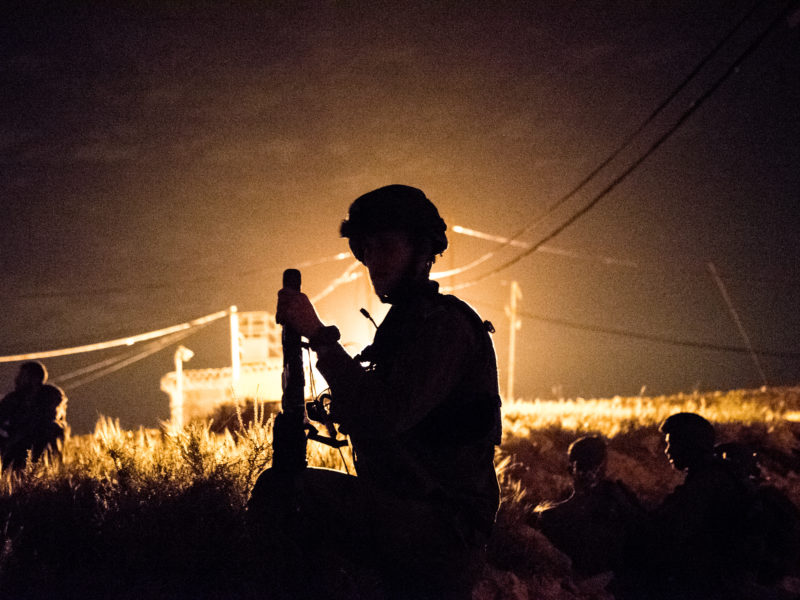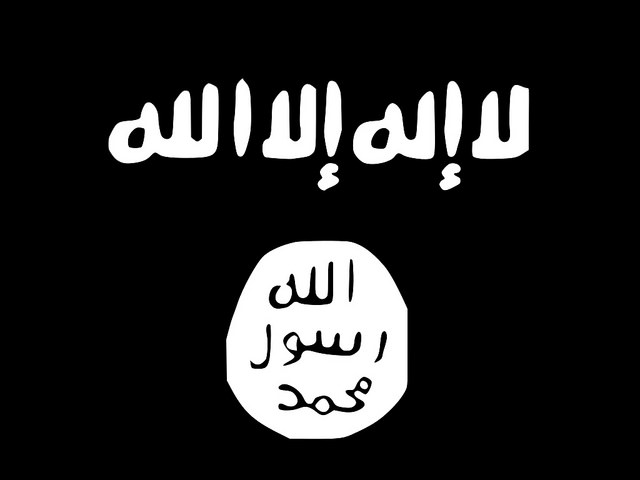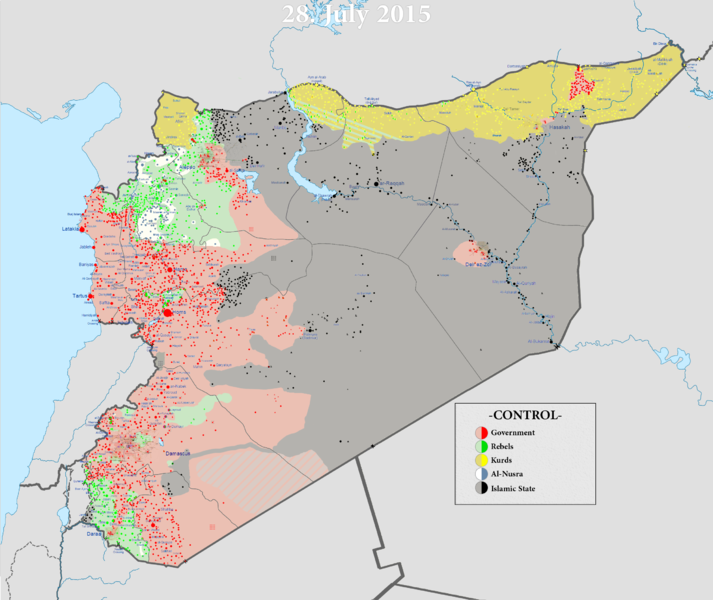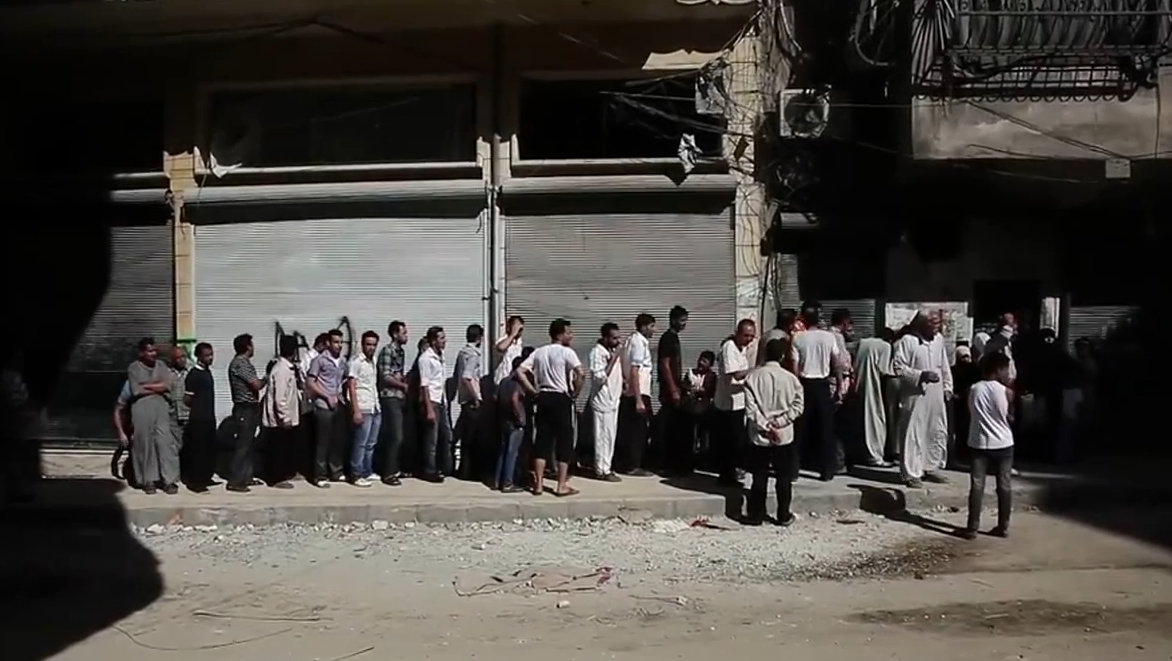Will Israeli annexation of the Jordan Valley come at the expense of peace with Jordan? A number of defense and security officials, diplomats, foreign policy wonks, and analysts have fretted that a surge of anger over the move among Jordan’s “majority Palestinian population” might force King Abdullah II’s hand. Relations between the two states have been in a free-fall over the last few years, rocked by repeated confrontations over access to Jerusalem’s Islamic shrines, and two separate incidents in which Israeli security guards shot dead Jordanian citizens. On May 15, 2020, remarks by King Abdullah II lent credence to these concerns when he warned that annexation could provoke a “massive confrontation with Jordan.”
But how serious are such threats? When protests erupt in Jordan, and the parliament passes motions demanding the treaty be severed, will King Abdullah II bow to their will?
Not. A. Chance.
Underneath the ominous headlines, a well-practiced dance is taking place. Well-publicized snubs and fiery rhetoric signal official outrage, while the parties simultaneously seek denouement. When Israel moves ahead with annexation—whether in its fuller form or the more probable scaled-down version, Jordan will immediately recall its ambassador from Tel Aviv, consider expulsion or closure of the Israeli mission, and maybe, just maybe, give in to popular demands to scuttle the 2016 agreement to import natural gas from Israel.
But terminate the 1994 Wadi Araba treaty all together? Let me repeat: Not. A. Chance.
In the abstract, the probable outcome should be self-evident. Unilateral abrogation of a signed peace agreement would be a provocative and costly act. Absent a fundamental change in circumstance mitigating those risks, such as an improvement in the imbalance of power between the former belligerents or alternative alliance options to deter adversaries, states are more likely to maintain the agreement. This is particularly true if a big portion of the document is a text-book non-aggression pact and the last potential border incident was barely a month ago.
Even before considering the repercussions of abrogating the treaty on foreign assistance to Jordan—not only from the United States, but Saudi Arabia and the Emirates, it should be readily apparent that Jordan’s “limited options” include the few diplomatic and rhetorical tools they can deploy to signal discontent and diffuse public anger whilst maintaining the status quo. This is, after all, how the regime has managed each of the earlier outrage-provoking crises that have erupted over the last 25 years. Nothing in the conditions within the Kingdom or around it have changed sufficiently to warrant such a risk.
So why do we keep talking about it? Why are premature obituaries to the 1994 Wadi Araba treaty one of the most predictable side-effects to crises in the Israeli-Palestinian peace process?
There are two reasons. First, the majority of research and commentary on Jordanian-Israeli relations post the culmination of the treaty focus on its failure to “good neighborly relations.” These studies rightly conclude that enduring antipathy to normalization with Israel has prompted the regime to all but abandon clauses in the agreement calling for cross-border cooperation in the economic, environmental, and scientific fields, as well as cultural exchange. However, inaccurately recounting how and why such a frosty peace developed between Israel and Jordan, these studies overestimate the importance of these clauses to the genesis of the treaty and its durability.
Certainly, there was hope in 1994 that the Wadi Araba Treaty would lead to a more positive peace than its Egyptian-Israeli counterpart. But that was never the primary or even principal objective in seeking its culmination. The main goal of a peace agreement was to put an end to 40 years of belligerency in which Jordan was almost always on the losing end. Ask any Jordanian official who took part in the negotiations at any level. They will give you the same answer every single time—the late King Hussein pursued peace with Israel because he did not want to fight another war (full stop).
The second reason is more discursive. Fragility, it would seem, is what states make of it. And in the case of the putative fragility of the Jordanian-Israeli peace agreement, they make a whole lot. Evidence of durability notwithstanding, reinforcing the perception of the 1994 Wadi Araba treaty as one protest away from evaporation is an effective means of leverage both Jordanians and Israelis routinely employ to their advantage.
It’s not by accident that King Abdullah II publicly warned of massive confrontations and the danger of chaos just weeks before a series of teleconferences with key congressional leaders in the United States. The specter of instability along its western border is a standard line in the Jordanian playbook when making the rounds on Capitol Hill. They know it works. Conversely, Israeli officials similarly invoke the fragility of the treaty when arguing against territorial compromise. It even comes up in the annexation debate. If both the treaty and the entire Hashemite monarchy can be wiped away by an angry mob, how can Israel risk ceding control of the Jordan Valley?
Ironically, the tea leaves suggest that Jordan is winning—or at least losing less precipitously, on this rhetorical round. After weeks of running full bore towards annexation of up to 30 percent of the West Bank, including the Jordan Valley, all signs point to a deferred decision and the extension of Israeli sovereignty to a few more settlements around Jerusalem. While these expected adjustments will do little to resuscitate the prospect of a viable Palestinian State, they should serve to make the status quo just a little more tenable for Jordan.







